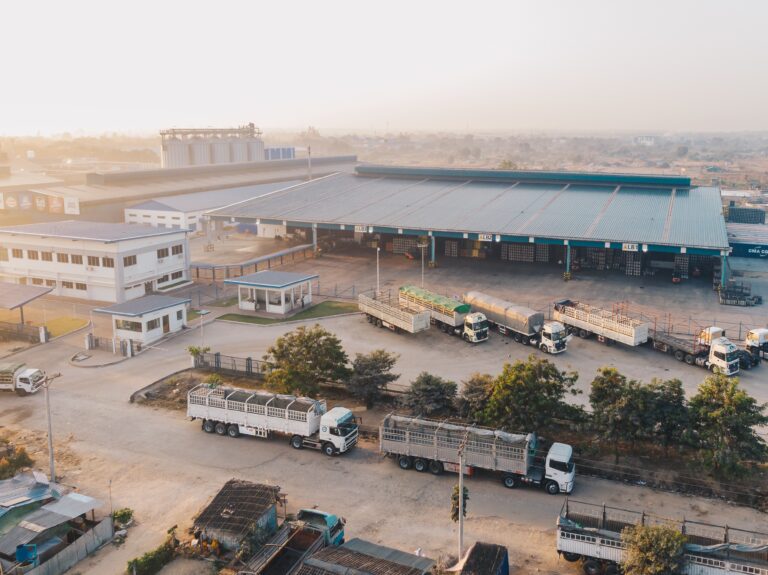Did you know project engineers help manage projects worth over $1 trillion around the world every year? They are the people who make sure big plans actually get done, like building roads, factories, and new technology.
A project engineer is the link between the planning team and the people doing the work. They help keep projects on track, on budget, and running smoothly. You’ll find project engineers working in many industries like construction, manufacturing, and IT.
In this easy-to-follow guide, we’ll explain what a project engineer does, the skills they need, how to become one, how much they earn, and what their career can look like.
Whether you are a job seeker wanting to start a career, a recruiter searching for the right person, or a student exploring future options, this guide is here to help you.
Let’s get started!
Who is a Project Engineer?
A project engineer is the person who:
- Takes care of technical project work
- Brings together different teams
- Makes sure the final result is safe, high-quality, and delivered on time

A project engineer is responsible for managing the technical parts of a project and making sure everything runs smoothly. They work hard to ensure that projects are completed on time, within budget, and meet the required quality and safety standards.
Think of a project engineer as a bridge, they connect different teams like designers, workers, clients, and suppliers. They help everyone work together and solve problems when things don’t go as planned.
Where Do Project Engineers Work?
Project engineers can work in many industries, such as:
- Construction: Building roads, bridges, buildings, etc.
- IT (Information Technology): Managing software or system installation projects.
- Manufacturing: Overseeing the setup of machines or production lines.
- Energy: Handling power plant, oil, or renewable energy projects.
Example: Let’s say Sarah is a civil project engineer. She was in charge of a big bridge project worth $50 million. Her job was to plan, coordinate with different teams, track progress, and make sure the bridge was safe and completed on time. Thanks to her efforts, the project was finished ahead of schedule and met all safety guidelines.
Check out the roles and responsibilities of Project Coordinator in detail here.
Project Engineer Roles and Responsibilities
The project engineer roles and responsibilities cover many important tasks that keep a project moving in the right direction. Project engineers manage technical work, solve problems, and make sure that the project is completed on time, within budget, and meets all quality and safety standards. They work closely with designers, workers, suppliers, and clients to bring the project to life.
Project Planning and Scheduling
Project engineers carefully plan each step to keep the project on track. Key tasks include:
- Develop detailed project schedules and timelines.
- Plan the sequence of tasks to improve efficiency.
- Adjust schedules when unexpected changes happen.
Budget Management and Cost Control
They ensure the project stays within the approved budget. Key tasks include:
- Prepare cost estimates and manage expenses.
- Track spending to avoid budget overruns.
- Find cost-saving solutions without lowering quality.
Team Coordination and Communication
Project engineers keep all teams working together smoothly. Key tasks include:
- Communicate with designers, engineers, suppliers, and workers.
- Organize regular team meetings to share updates.
- Solve team issues quickly to avoid project delays.
Technical Support and Problem Solving
They handle technical challenges and offer expert advice. Key tasks include:
- Review technical drawings and project plans.
- Help solve engineering or site-related problems.
- Suggest improvements to make work easier or faster.
Quality Control and Safety Assurance
Ensuring top quality and safety is one of their key roles. Key tasks include:
- Inspect project materials and work regularly.
- Ensure the project follows industry standards and safety rules.
- Fix quality or safety issues immediately.
Risk Management
Project engineers plan ahead to avoid project risks. Key tasks include:
- Identify possible project risks early.
- Create backup plans to handle unexpected issues.
- Monitor risks throughout the project.
Progress Monitoring and Reporting
They keep track of how the project is moving forward. Key tasks include:
- Measure daily and weekly project progress.
- Prepare reports for managers and clients.
- Suggest improvements to stay on schedule.
Client and Stakeholder Communication
Keeping clients informed is an essential part of the job. Key tasks include:
- Share regular project updates with clients.
- Understand client needs and solve their concerns.
- Build strong relationships for future work opportunities.
Resource and Material Management
They make sure the project has everything it needs to succeed. Key tasks include:
- Arrange for materials, equipment, and skilled workers.
- Check that all resources are used efficiently.
- Solve shortages or supply issues quickly.
In simple terms, a project engineer makes sure the right people, materials, and processes come together to complete a project successfully.
Project Engineer Job Description
A Job Description (JD) is more than just a list of tasks, it’s a powerful tool that helps recruiters attract the right candidates and helps job seekers understand what’s expected of them. A good JD should clearly explain:
- The role’s purpose
- Key responsibilities
- Required qualifications and skills
- Work environment and reporting structure
- How to apply
When written well, a job description helps recruiters hire faster and smarter. It also helps job seekers tailor their resumes and prepare for interviews with confidence.
If you’re a recruiter or hiring manager, this ready-to-use job description will help you attract top project engineering talent. It’s clear, keyword-rich, and easy to customize for your specific industry like construction, manufacturing, IT, or energy.
If you’re a job seeker or student, you can use this template to better understand what companies expect from a project engineer. You can also use the responsibilities and skills listed here to update your resume, write a focused cover letter, or prepare for interview questions.
Project Engineer Job Description
Job Title: Project Engineer
Job Type: Full-Time / Contract
Reports To: Project Manager
Job Summary:
We are seeking a skilled and motivated Project Engineer to manage the technical aspects of our projects. In this role, you will plan, coordinate, and oversee project activities to ensure they are completed on time, within budget, and according to quality and safety standards.
As a project engineer, you will serve as the critical link between the design team, project managers, on-site workers, and stakeholders. You will be responsible for solving technical problems, managing resources, and providing regular project updates.
This role is essential for delivering successful projects in [insert industry: construction, manufacturing, IT, energy, etc.].
Key Project Engineer Roles and Responsibilities:
As a project engineer, you will:
- Plan and Organize Projects:
- Develop project scopes, timelines, and detailed work plans.
- Create project budgets and manage costs.
- Set project milestones and delivery goals.
- Coordinate with Teams:
- Collaborate with engineers, contractors, vendors, and clients.
- Organize team meetings to track progress and solve issues.
- Ensure smooth communication across all teams.
- Manage Technical Work:
- Review and approve technical designs and engineering plans.
- Solve complex technical problems during project execution.
- Provide on-site technical support when needed.
- Control Quality and Safety:
- Ensure all work meets company standards, safety rules, and legal regulations.
- Conduct regular inspections and quality checks.
- Address any quality or safety concerns immediately.
- Monitor Costs and Resources:
- Track daily project expenses.
- Approve material and equipment costs.
- Manage resources efficiently to avoid delays.
- Track Progress and Report:
- Measure project performance against goals.
- Prepare regular status reports for managers and clients.
- Suggest improvements to keep projects on schedule.
- Identify and Manage Risks:
- Detect potential project risks early.
- Develop backup plans to solve possible issues.
- Act quickly to manage delays or challenges.
- Maintain Client Communication:
- Keep clients informed about project status.
- Understand client needs and ensure their satisfaction.
- Build strong working relationships with all stakeholders.
Qualifications:
- Bachelor’s degree in Engineering (Civil, Mechanical, Electrical, or related field).
- 3–5 years of relevant experience in project engineering or similar roles.
- Familiarity with project management tools like MS Project, AutoCAD, or Revit.
- Knowledge of safety regulations and quality standards in the [insert relevant industry].
Required Skills:
- Strong engineering and technical knowledge.
- Excellent project planning, budgeting, and organizational skills.
- Problem-solving abilities and attention to detail.
- Good communication and leadership skills.
- Ability to work well in a team environment.
How to Apply:
If you are excited to lead and deliver impactful projects, please send your resume and cover letter to [insert email address or application link]. Mention “Project Engineer Application” in the subject line.
Quick Tips:
For Recruiters: Use keywords like “project engineer,” “technical project management,” and “engineering coordination” to improve your job post’s visibility and attract qualified candidates. Be clear and avoid overused terms like rockstar or guru.
For Candidates: Use this job description to tailor your resume by matching your skills and past experiences to the listed responsibilities. Highlight project planning, team coordination, and problem-solving examples in your application.
Discover our Job Description category to find out more about to explore various job description templates and roles and responsibilities of popular careers in 2025.
Types of Project Engineers & Roles and Responsibilities
Project engineers often specialize in different industries, and each type of project engineer focuses on specific tasks and challenges. Understanding the different types can help you choose the right career path or find the right candidate for your company.
Let’s explore the main types of project engineers in simple terms:
Civil Project Engineer
What Civil Project Engineers Do- They Work on construction projects like roads, bridges, buildings, and highways.
Key Responsibilities:
- Inspect project sites regularly.
- Ensure designs follow government rules and safety codes.
- Supervise on-site construction teams to keep projects on schedule.
Mechanical Project Engineer
What Mechanical Project Engineers Do- They design and manage machines, engines, or equipment for industries like automotive, aerospace, and manufacturing.
Key Responsibilities:
- Design machine parts and mechanical systems.
- Test equipment for quality and performance.
- Fix design and operational issues quickly.
Electrical Project Engineer
What Electrical Project Engineer Do- They plan and manage electrical systems in buildings, factories, or energy plants.
Key Responsibilities:
- Design and review wiring and electrical layouts.
- Ensure all electrical work is safe and meets regulations.
- Oversee the installation of power systems and equipment.
Manufacturing Project Engineer
What Manufacturing Project Engineer Do: They improve factory operations, machines, and production processes.
Key Responsibilities:
- Upgrade equipment to improve speed and quality.
- Solve problems in production lines to avoid delays.
- Ensure smooth coordination between design and manufacturing teams.
IT Project Engineer
What IT Project Engineers Do- They handle software and hardware projects, working with development teams and IT managers.
Key Responsibilities:
- Plan and track software or system development timelines.
- Manage technical setups and system upgrades.
- Coordinate with developers, testers, and clients.
Environmental Project Engineer
What Environmental Project Engineers Do- They lead eco-friendly projects like solar farms, water treatment plants, and pollution control systems.
Key Responsibilities:
- Design sustainable and green solutions.
- Ensure projects meet environmental standards.
- Monitor and reduce environmental impact during project work.
| Industry | Key Tasks |
| Construction | Oversee bridges, roads, and building projects. Ensure safety and compliance. |
| Manufacturing | Improve production lines, upgrade equipment, solve factory issues. |
| IT | Manage software or hardware projects, ensure smooth system integration. |
Summary:
- Each type of project engineer works on different kinds of projects.
- Civil engineers build structures, mechanical engineers design machines, electrical engineers manage power, manufacturing engineers improve factories, IT engineers manage tech projects, and environmental engineers work on green solutions.
What Skills Does a Project Engineer Need?
To succeed as a project engineer, you need more than just technical knowledge. Project engineers juggle both technical tasks and people management every day. They must plan projects, solve problems quickly, work with teams, manage budgets, and make sure everything meets quality and safety standards.
In simple words, success in this role requires a perfect mix of combination skills:
- Technical expertise
- Project management skills
- Strong communication
- Leadership abilities
- Problem-solving skills
- Attention to detail

Let’s break these down:
Technical Expertise
Project engineers must deeply understand engineering principles and have hands-on knowledge of their industry.
- Use design and project tools like AutoCAD, Revit, Primavera, and MS Project.
- Read and review engineering drawings and technical plans.
- Apply safety, quality, and compliance standards correctly.
Project Management
A project engineer must know how to manage time, people, and money.
- Plan project budgets and track costs carefully.
- Set realistic timelines and keep projects on schedule.
- Manage risks and prepare backup plans for unexpected problems.
Communication Skills
Clear communication keeps the whole project team connected.
- Share ideas clearly with engineers, contractors, and clients.
- Listen to team members and address their concerns.
- Write easy-to-understand reports and project updates.
Leadership Skills
Project engineers often guide and motivate teams.
- Lead on-site and technical teams toward shared goals.
- Solve team conflicts and keep everyone working together.
- Take responsibility for smooth project delivery.
Problem-Solving
Projects don’t always go as planned. Quick thinking is key.
- Solve technical and site-related issues fast.
- Offer creative solutions to keep the project moving forward.
- Handle unexpected changes without missing deadlines.
Attention to Detail
Small mistakes can cause big problems, so precision matters.
- Check quality at every project stage.
- Ensure all work follows industry standards and safety rules.
- Keep a close watch on costs, materials, and resources.
What’s New for 2025?
The project engineering field is evolving. Here are the emerging skills to stay competitive:
- Building Information Modeling (BIM): Learn this advanced 3D project planning tool.
- AI in Project Management: Start using AI-powered software for faster planning and problem prediction.
- Sustainability Focus: Develop green skills to manage eco-friendly and energy-efficient projects.
So, to be a successful project engineer in 2025 and beyond, you need a balance of hard skills and soft skills. Mastering both technical tools and people management will help you lead projects with confidence and stay ahead in a changing industry.
How to Become a Project Engineer?
To become a project engineer, you must earn an engineering degree, gain 3–5 years of work experience, get certified, and apply for roles that match your skills.
If you’re ready to start your career as a project engineer, here’s a simple, practical roadmap to help you get there.
Step 1: Earn an Engineering Degree
Start by getting a Bachelor’s degree in engineering. You can choose from:
- Civil Engineering
- Mechanical Engineering
- Electrical Engineering
- Industrial Engineering
- Other specialized fields
This is your foundation for becoming a project engineer.
Step 2: Gain Practical Experience
Work as a junior engineer or take internships to get hands-on experience.
- Learn how real projects are managed.
- Understand how teams work on-site or in offices.
- Build confidence by working under experienced project managers.
Step 3: Build Project Management and Soft Skills
Start learning project management basics along with technical skills.
- Improve communication and teamwork.
- Learn how to plan, schedule, and manage risks.
- Get comfortable using tools like AutoCAD, Primavera, Revit, or MS Project.
Step 4: Get Certified
Stand out in the job market with industry-recognized certifications:
- PMP (Project Management Professional) Certification
- PE (Professional Engineer) License
- Other project engineering or safety certifications
These certifications boost your credibility and show employers you’re serious.
Step 5: Apply for Jobs
Search for project engineer roles using job platforms like Taggd.
- Tailor your resume for each job.
- Highlight your project experience, skills, and tools you know.
- Prepare for interviews by studying common project challenges.
Step 6: Keep Learning
Technology is always changing.
- Learn Building Information Modeling (BIM) and other digital tools.
- Explore AI-powered project management software.
- Focus on sustainable and green project practices to stay future-ready.
Project Engineer Resume Tips for Candidates
A strong resume can help you stand out from other applicants. Here’s how to make your project engineer resume shine:
Use the Right Keywords
- Add terms like “project management,” “technical oversight,” and “risk management.”
- Mention specific tools like AutoCAD, Revit, Primavera, MS Project.
Highlight Real Project Results
- Show what you achieved. Example: “Led a $2M project and saved 10% in costs through smart planning.”
Keep It Short and Clear
- Aim for 1–2 pages.
- Use bullet points to list your achievements.
- Keep your sentences simple and direct.
Include Certifications
- List certifications like PMP or PE near the top of your resume.
Customize for Each Job
- Tailor your resume for each company.
- Match your skills to the job description.
Employer Tip:
When hiring project engineers, look for candidates with real project experience and solid software skills. These candidates are more likely to handle complex projects smoothly.
Project Engineer Salary and Job Outlook
Project engineer salaries vary based on country, experience, industry, and certifications. Here’s a detailed look at the typical pay across different regions:
| Country | Salary Range (Per Year) |
| USA | $60,000 – $140,000 |
| India | ₹4,00,000 – ₹10,00,000 |
| UK | £35,000 – £55,000 |
| Australia | AU$110,000 – AU$150,000 |
| UAE | AED 80,000 – AED 120,000 |
| Singapore | SGD 50,000 – SGD 70,000 |
| Germany | €60,000 – €80,000 |
What Affects a Project Engineer’s Salary?
Several factors can impact how much a project engineer earns:
- Experience Level: Senior engineers or those with more than 5 years of experience typically earn higher salaries.
- Industry: Project engineers in oil & gas, IT, and renewable energy usually earn more than those in smaller industries.
- Certifications: Holding certifications like PMP (Project Management Professional) or PE (Professional Engineer) can increase salary potential significantly.
- Location: Salaries are usually higher in countries or cities with more infrastructure and technology development.
Example: A PMP-certified project engineer in the USA can earn closer to $140,000 per year, while an entry-level engineer in India may start at ₹4,00,000 per year.
What’s the Job Outlook for Project Engineers?
The demand for project engineers is expected to grow steadily. According to the U.S. Bureau of Labor Statistics (BLS), jobs in this field are projected to grow by about 8% by 2030.
Growing Sectors:
- Construction: As cities expand, more engineers are needed for roads, buildings, and bridges.
- IT Projects: Tech companies need project engineers to manage software and hardware rollouts.
- Green Energy: Solar, wind, and sustainability projects are creating new job opportunities for engineers.
What’s New?
- More companies are hiring project engineers with green energy experience.
- Digital project management tools and AI-based planning software are becoming highly valued skills.
- International job opportunities are increasing, especially in fast-developing regions like the Middle East and Southeast Asia.
Difference between Project Engineer and Project Manager
Many people often mix up the roles of project engineers and project managers, but they actually focus on very different parts of a project. A project engineer handles the technical side, making sure the designs, quality, and safety are right. A project manager takes care of the big picture, planning the timeline, managing the budget, and leading the entire project team.

Both roles work closely together, but their core responsibilities, skills, and outcomes are not the same.
Project Engineer vs. Project Manager
| Aspect | Project Engineer | Project Manager |
| Focus | Technical tasks, designs, and quality | Budgets, timelines, overall project control |
| Skills | Engineering expertise, technical problem-solving | Leadership, budgeting, team coordination |
| Main Role | Ensure quality, safety, and technical accuracy | Deliver the project on time and within budget |
| Day-to-Day | Review designs, solve technical issues, inspect sites | Plan schedules, manage teams, track budgets |
| Tools Used | AutoCAD, Revit, Primavera, technical software | MS Project, project management tools |
| Reporting To | Project Manager or Senior Engineer | Senior Management or Clients |
| Career Path | Can grow into Project Manager or Senior Engineer | Can advance to Program Manager or Director |
Check out what program managers do here.
Evolving Roles and Responsibilities of Project Engineers
The role of a project engineer is changing quickly in today’s fast-moving industries. In the past, project engineers mainly focused on technical tasks like design review, site supervision, and quality checks. But now, their responsibilities are expanding as projects become more complex, digital, and globally connected.
Here’s how the role of a project engineer is evolving:
From Purely Technical to Multi-Skilled Leaders
Project engineers are no longer just technical experts.
Today, they need to:
- Manage budgets and schedules.
- Lead teams and resolve conflicts.
- Balance technical tasks with project management duties.
Modern project engineers are expected to handle both technical details and people management.
Greater Focus on Sustainability
There is a growing demand for green and eco-friendly projects.
Project engineers now:
- Work on sustainable building designs.
- Help companies reduce waste and carbon emissions.
- Use eco-friendly materials and promote energy-efficient practices.
Adoption of Digital Tools
Digital skills are now essential for project engineers.
They must know how to:
- Use Building Information Modeling (BIM) for 3D project planning.
- Work with AI-powered project management software.
- Analyze project data in real-time to make faster decisions.
Remote Project Coordination
Thanks to global teams and virtual tools, project engineers often:
- Coordinate work across different countries and time zones.
- Use digital platforms to manage remote teams and virtual site visits.
- Handle projects that involve offshore suppliers and international clients.
More Client Interaction
Project engineers are now more involved in:
- Communicating directly with clients to understand their needs.
- Presenting project updates, progress reports, and solutions.
- Building long-term client relationships.
They are becoming key decision-makers, not just technical advisors.
Cross-Functional Collaboration
Modern project engineers:
- Work closely with finance, procurement, and IT teams.
- Must understand basic contract management, supply chain processes, and vendor coordination.
- Take a more holistic approach to project delivery.
Key Takeaway:
The project engineer’s role is no longer limited to technical supervision.
Today’s project engineers must be:
- Technically strong
- Project-savvy
- Digitally skilled
- Client-focused
- Environmentally responsible
In short, project engineers are becoming all-round project leaders.
Wrapping Up
Project engineers are the unsung heroes of successful projects. They combine deep technical knowledge with project management, teamwork, and problem-solving skills to bring complex ideas to life. Whether it’s building bridges, improving production lines, or managing IT systems, project engineers make sure everything is done right—on time, within budget, and with top quality.
In this blog, we explored:
What project engineers do: They manage technical tasks, solve problems, and coordinate teams across industries like construction, manufacturing, IT, and green energy.
Project engineer roles and responsibilities: From project planning and budgeting to team coordination, quality control, and risk management, their duties are both detailed and diverse.
Types of project engineers: Different industries need different experts—civil, mechanical, electrical, manufacturing, IT, and environmental project engineers all play unique roles.
Key skills required: Success requires a mix of technical skills, project management abilities, strong communication, leadership, problem-solving, and attention to detail. New skills like Building Information Modeling (BIM), AI tools, and sustainability knowledge are quickly becoming essential.
How to become a project engineer: The path includes earning an engineering degree, gaining real-world experience, learning project management, getting certified (like PMP), applying for jobs, and continuing to build new skills.
Resume tips: A project engineer’s resume should include keywords, measurable results, relevant tools, certifications, and should be tailored for each job.
Salary and job outlook: Project engineer salaries vary across countries but generally offer good earning potential. Demand for project engineers is rising, especially in construction, IT, and green energy sectors.
Project engineer vs. project manager: While project engineers handle technical details, project managers oversee budgets, timelines, and overall project delivery. The roles are different but connected, and many engineers grow into management positions over time.
Evolving responsibilities: Project engineers today must be digitally skilled, sustainability-focused, and ready to lead cross-functional, often remote, teams. Their role has expanded beyond technical tasks into a more strategic, leadership-driven position.
Ready to Hire Top Project Engineers or Advance your Career?
For Employers: Taggd’s AI-powered recruitment solutions streamline your hiring process, matching you with skilled accountants who align with your organization’s goals and culture. Find the perfect fit faster with our data-driven approach.
For Job Seekers: Discover 1000+ job opportunities with India’s leading companies through Taggd’s smart career platform. Join our Career Circles and get matched to roles that elevate your skills and ambitions.
Start your journey today with Taggd!









